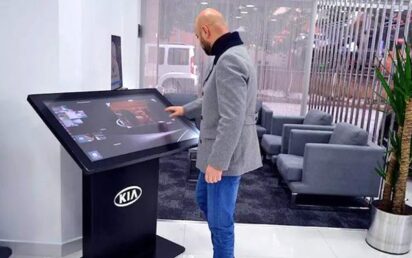Trading in the shares of historic North East tech firm Zytronic is to be suspended next week.
Gateshead-headquartered Zytronic, a manufacturer of touch overlay sensors for interactive displays dating back to the 1940s, employs more than 100 people.
In consultation with FRP Advisory Trading Limited, it is winding down operations after considering several options including solvent liquidation or a sale following a strategic review. The company appointed a new chair in 2023 in a bid to turn around its fortunes after sales failed to recover to pre-COVID levels.
Today Zytronic notified the London Stock Exchange that its annual report and accounts for FY24 – covering the 12 months to 30th September 2024 – will not be published by the deadline of 31st March 2025.
Trading in the company’s shares will therefore be suspended on 1st April 2025.
“Upon the board’s decision to proceed to wind down the company, the accounts could no longer be prepared under the assumption the business would continue as a ‘going concern’. It has therefore taken additional time to prepare and audit the accounts on a non-going concern basis,” it stated.
“The company and its advisers are actively working towards the publication of a shareholder circular, expected to be released during the week commencing 31st March 2025, which will contain further details regarding the proposed cancellation of the company’s admission to trading on AIM and the proposed re-registration of the company as a private limited company.”
The company’s technology – manufactured in three factories in Blaydon – is used in self-service, gaming and industrial applications.
The group said recently its net cash position is around £3.3m but excludes wind-down costs.
In 2019 the firm generated £20m in sales. It expects to report unaudited revenues for the financial year ended 30th September 2024 of £7.2m, a fall from £8.6m in 2023.
Several of Zytronic’s customers in North America had been affected by the bankruptcy of Aruze Gaming America, while wider overstocking due to supply chain concerns had also hit it hard.
Options on the table had included the implementation of a new strategic business plan, an orderly solvent liquidation of the company’s assets, the potential sale of the company, delisting and continuing as a private company, and selling the assets and continuing as a cash shell.
Solvent liquidation is when a company chooses to wind down despite holding assets valued more highly than its debt obligations.
Bartlett, THG, DHSC & Innovate UK – this week’s best-read stories


